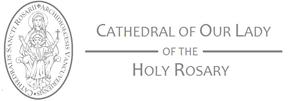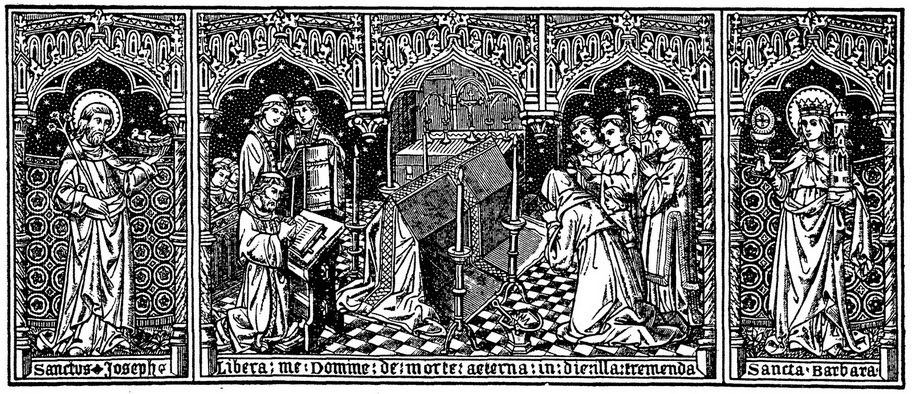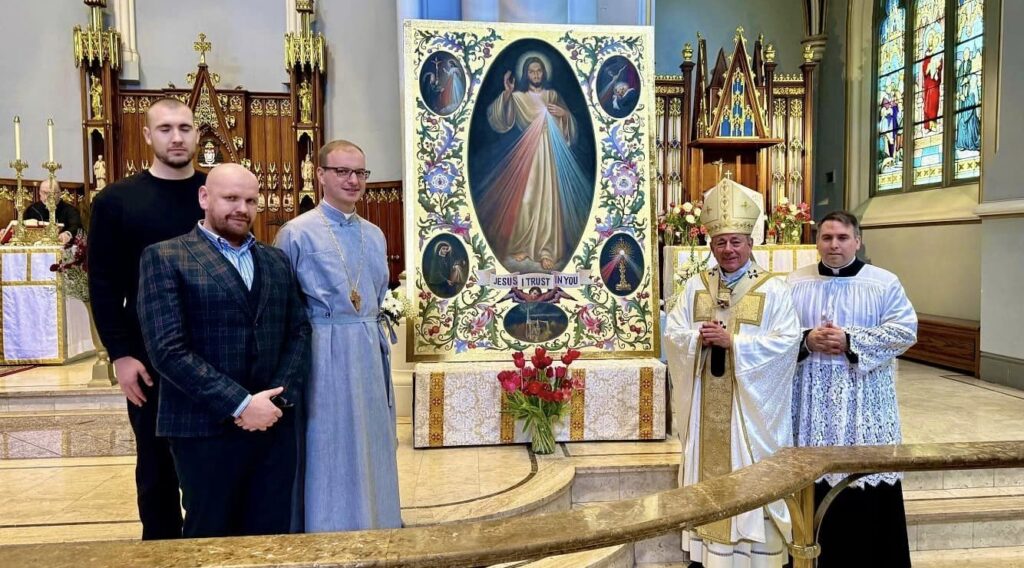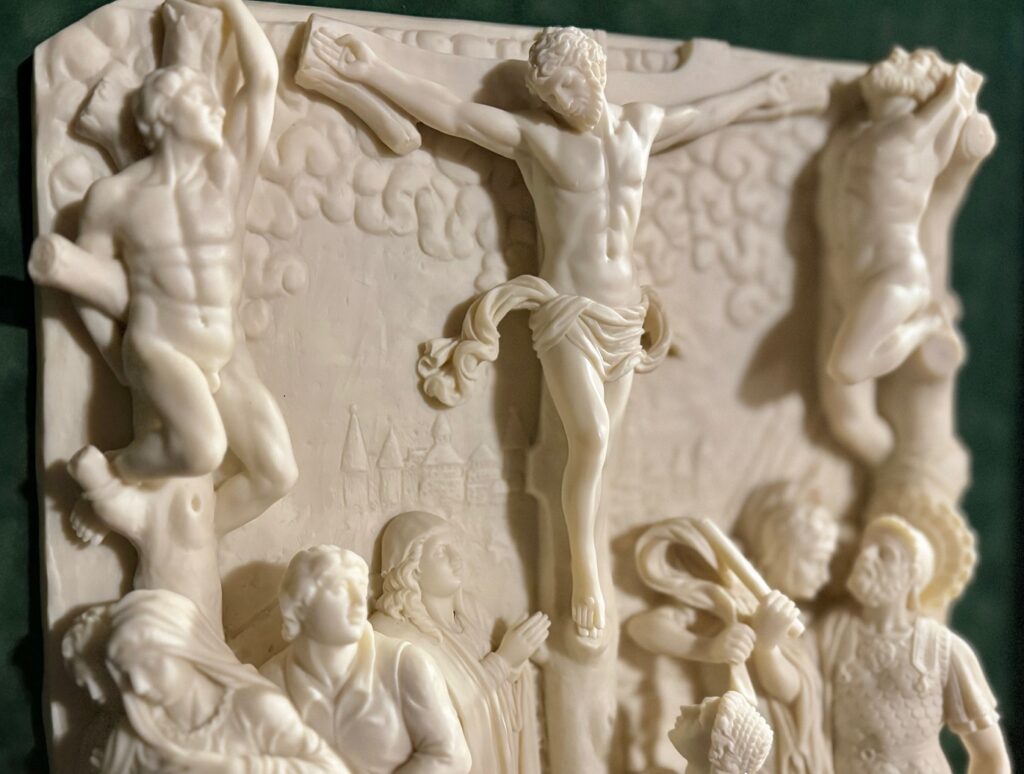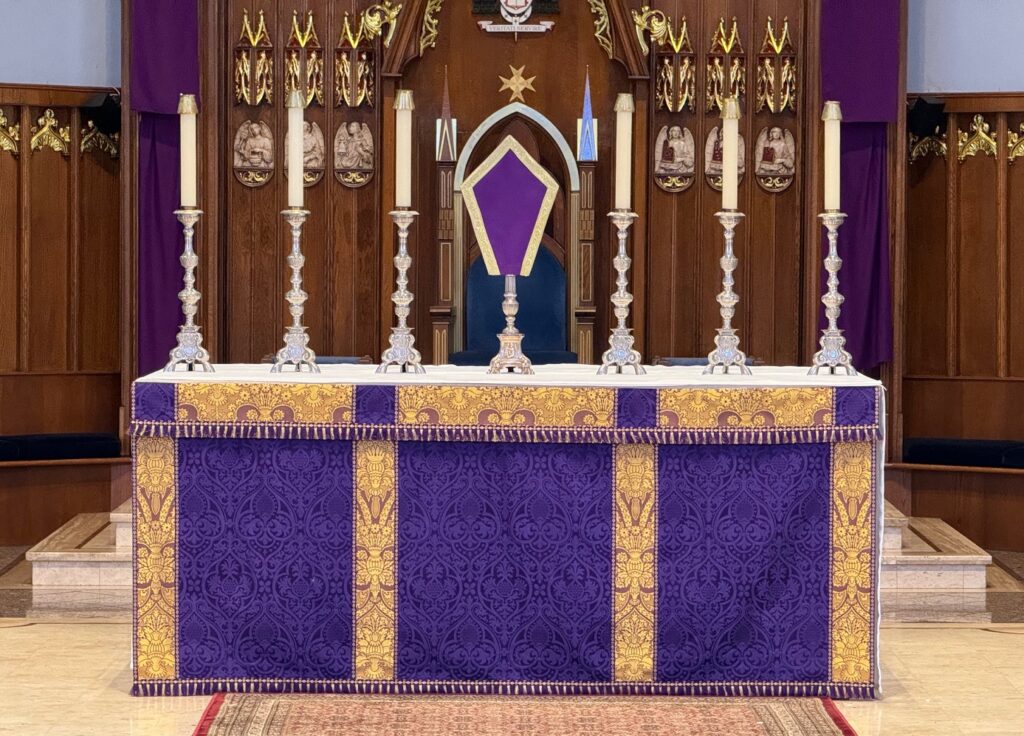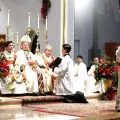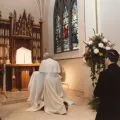The Catholic Catechism teaches about three states of the Church (n.954): “When the Lord comes in glory and all his angels with him, death will be no more and all things will be subject to him. But at the present time some of his disciples are pilgrims on earth. Others have died and are being purified, while still others are in glory, contemplating in full light, God himself triune and one, exactly as he is”.
With All Saints day, November 1st, the Church invites us to raise our hearts and minds to the immense multitude of men and women from all walks of life who followed Christ here on earth and are already enjoying his presence in Heaven. This Solemnity is being celebrated since the eighth century. Pope Saint John Paul II described these saints this way: “they were humble yet great laborers for the growth of the kingdom of God in history. They knew how with the help of God to conserve and perfect during their life the sanctification they received in Baptism.”
The Preface of Mass on All Saints says: “Heavenly Father, today we keep the festival of your holy city the heavenly Jerusalem. Our brothers and sisters the saints now sing your praises forever around your throne, and their glory fills us with joy. Our communion with them through your Church gives us inspiration and strength as we hasten on our pilgrimage of faith, eager to meet them.”
Regarding All Souls Day, November 2, the Catholic Catechism makes this teaching:” the Church in its pilgrim members, from the earliest days of the Christian religion, has honoured with great respect the memory of the dead; and’ because it is a holy and a wholesome thought to pray for the dead that they may be loosed from their sins’ (2 Maccabees 12) she offers prayers for them.
Pope Paul VI spoke about the infinite value of the Mass as the most important prayer we have to offer up for the souls in purgatory. He also said we can offer our prayers for their benefit, especially the Rosary, our work, the sufferings of life, and all kinds of difficulties we experience, as well as the indulgences we merit for them during our earthly existence.
The Catechism of the Catholic Church (n. 1478) describes how indulgences work: “an indulgence is obtained through the Church who, by virtue of the power of binding and loosing granted her by Christ Jesus, intervenes in favour of individual Christians and opens for them the treasury of the merits of Christ and the saints to obtain from the Father of Mercies the remission of the temple punishments due for their sins. Thus the Church does not want simply to come to the aid of these Christians, but also to spur them to works of devotion penance and charity.”
An indulgence is partial or plenary according as it removes either part or all of the temporal punishment due to sin. The faithful can gain indulgences for themselves or apply them to the dead. (cf Catholic Catechism n 1471) On the All Souls day, an indulgence for someone who has died can be obtained by doing three things: 1) Participate at Mass and humbly receive Holy Communion; 2) make a worthy sacramental confession on All Souls Day or a day or two on either side of All Souls; 3) pray for our Holy Father, Pope Francis (say devoutly an Apostles Creed, Our Father, Hail Mary) Remember that the Blessed Virgin Mary prays with us and for us, now and at the hour of our death. Her title, Refuge of sinners, is especially comforting to all of us on our pilgrimage of faith, in this life and in the time of purification.
Fr. Stanley Galvon
Rector of the Cathedral
